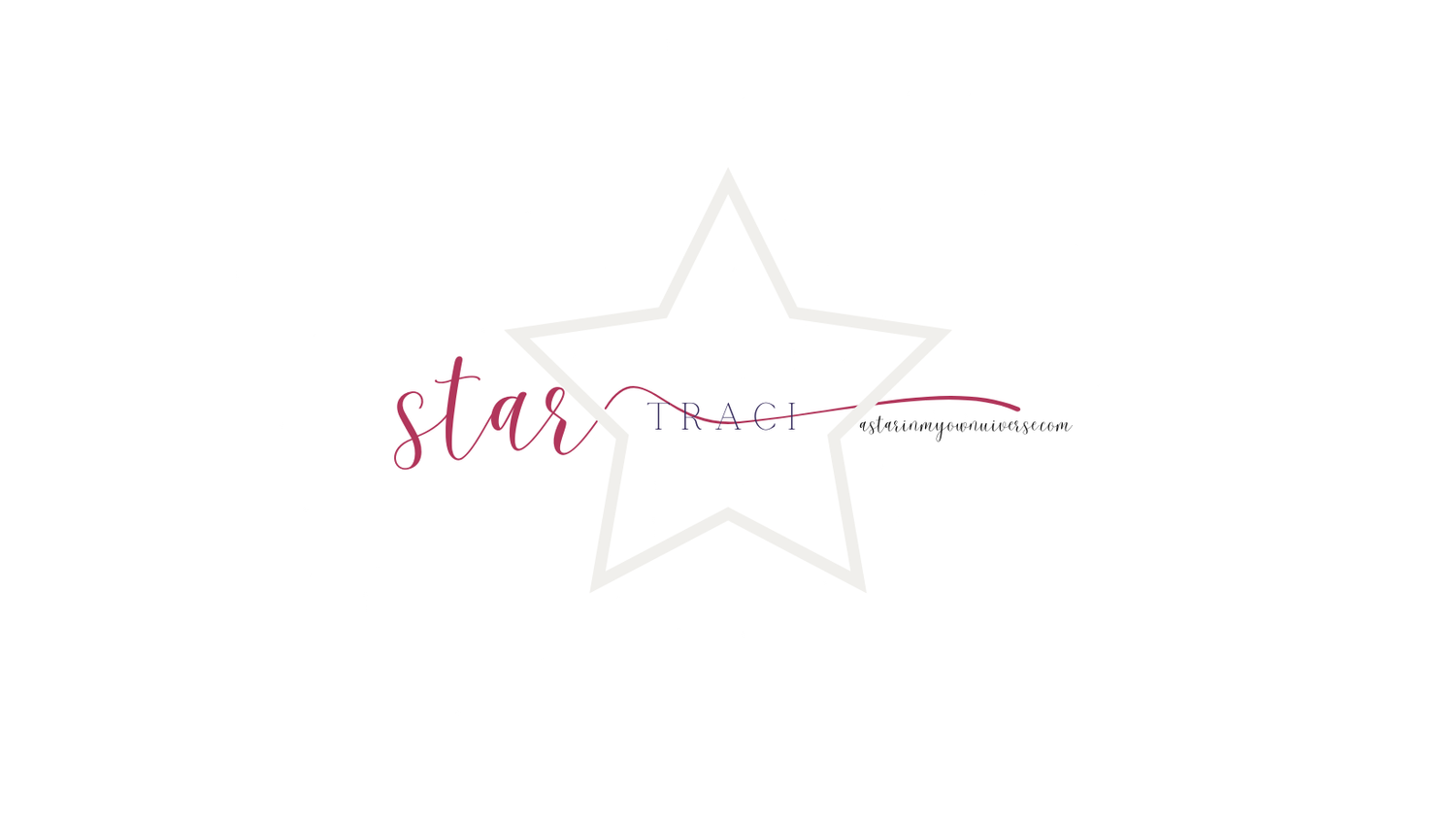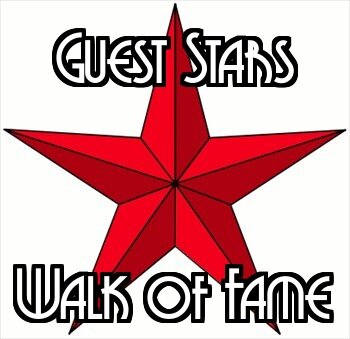Guest Stars #2 - Rae Redford
Below is a guest post by Rae Redford about Womenon20s,a project very close to my heart.You can find my piece about Rosa Parks on the 20 over at her site Muse Views.
***
The past several years have been full of phrases such as “War on Women” and “Rape Culture.” There have been major pushes for salary equality, grappling over who controls our reproductive rights, and movements such as HeForShe and LeanIn. Right alongside these initiatives is an organization fighting to put a woman on our $20 bills. With such weighty issues out there, why should we care whether there is a woman on our paper money?You may have heard of Womenon20s, a campaign that began over a year ago in an effort to remove Andrew Jackson from the $20 and replace him with a woman. They’ve been getting a lot of press lately and have been reported on by ABC, the New York Times, BuzzFeed, and NPR, just to name a few. Clearly, even in the face of much larger problems, this is an important issue. It’s close to my heart; now I want to talk about why it should matter to you, as well.
Our Values, Traditions, and History
In a statement released April 15th, Senator Jeanne Shaheen (D-NH) said “Our paper currency is an important part of our everyday lives and reflects our values, traditions and history as Americans. It’s long overdue for that reflection to include the contributions of women.” 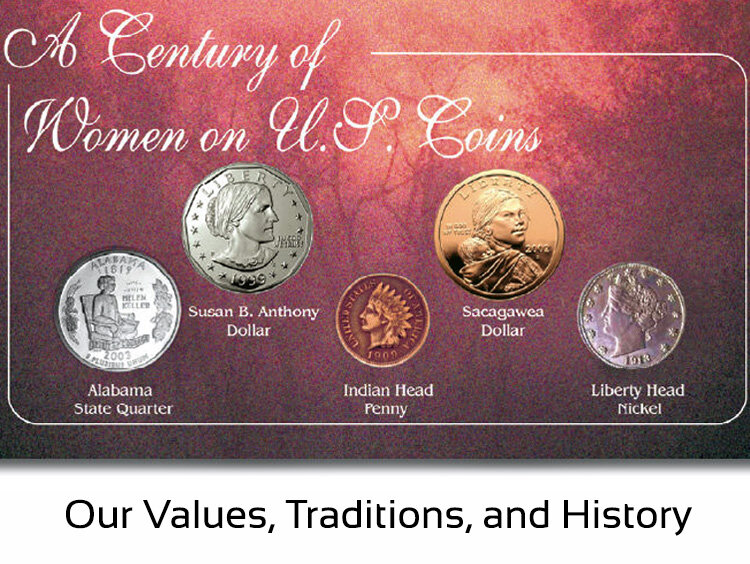 Of all the currency in your wallet, unless you’ve got a Susan B. Anthony dollar coin, a Sacagawea dollar coin, or an Alabama quarter (which displays Helen Keller’s portrait on the back), every single bit of currency with a human on it portrays a man. I will not argue that these men did not impact our nation’s history, but women have played pivotal roles as well. To not celebrate these outstanding females in the same way we celebrate our male heroes is an insult to these women who helped make our nation what it is today. By not elevating a woman (or two, or three!) to this same level - by not honoring a woman on our currency - you are telling women, “We do not value your efforts as much as we value those of men.”
Of all the currency in your wallet, unless you’ve got a Susan B. Anthony dollar coin, a Sacagawea dollar coin, or an Alabama quarter (which displays Helen Keller’s portrait on the back), every single bit of currency with a human on it portrays a man. I will not argue that these men did not impact our nation’s history, but women have played pivotal roles as well. To not celebrate these outstanding females in the same way we celebrate our male heroes is an insult to these women who helped make our nation what it is today. By not elevating a woman (or two, or three!) to this same level - by not honoring a woman on our currency - you are telling women, “We do not value your efforts as much as we value those of men.”
“A Woman’s Place is on the Money”
The slogan for Womenon20s campaign is “A Woman’s Place is on the Money.” 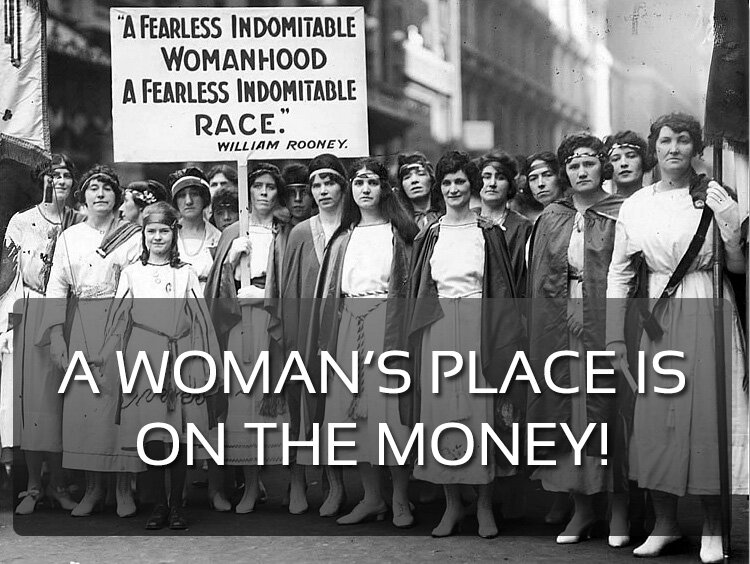 For a long time, it wasn’t. A woman’s place was in the home. Or the kitchen. Or dealing with the kids. Or cleaning the house. (Have you seen the vintage ads going around Facebook lately? Some of these were run as late as the 1980s!) A woman was property or chattel and was only to concern herself with pleasing her man. The suffrage movement began in 1848 in Seneca Falls, New York, and continued for 50 years, when, in 1920 women won the right to vote. Even then, they were not considered legally equal to men! Another amendment had to be written and presented and voted on, adding another 52 years to this timeline, when the Equal Rights Amendment was passed by both the House and the Senate in 1972. (This Amendment has yet to be ratified and added to our Constitution - 43 years later.) I would argue that women are still battling for equal rights to this very day. Having a woman on our paper currency would show that we are taking further steps away from those days of inequality and toward a future where we will be no longer have to fight for an equal place.
For a long time, it wasn’t. A woman’s place was in the home. Or the kitchen. Or dealing with the kids. Or cleaning the house. (Have you seen the vintage ads going around Facebook lately? Some of these were run as late as the 1980s!) A woman was property or chattel and was only to concern herself with pleasing her man. The suffrage movement began in 1848 in Seneca Falls, New York, and continued for 50 years, when, in 1920 women won the right to vote. Even then, they were not considered legally equal to men! Another amendment had to be written and presented and voted on, adding another 52 years to this timeline, when the Equal Rights Amendment was passed by both the House and the Senate in 1972. (This Amendment has yet to be ratified and added to our Constitution - 43 years later.) I would argue that women are still battling for equal rights to this very day. Having a woman on our paper currency would show that we are taking further steps away from those days of inequality and toward a future where we will be no longer have to fight for an equal place.
Symbols Are Important
Putting aside the serendipity that 2020 is the 100th anniversary of the 19th Amendment granting women the right to vote, I want to talk about Symbols. 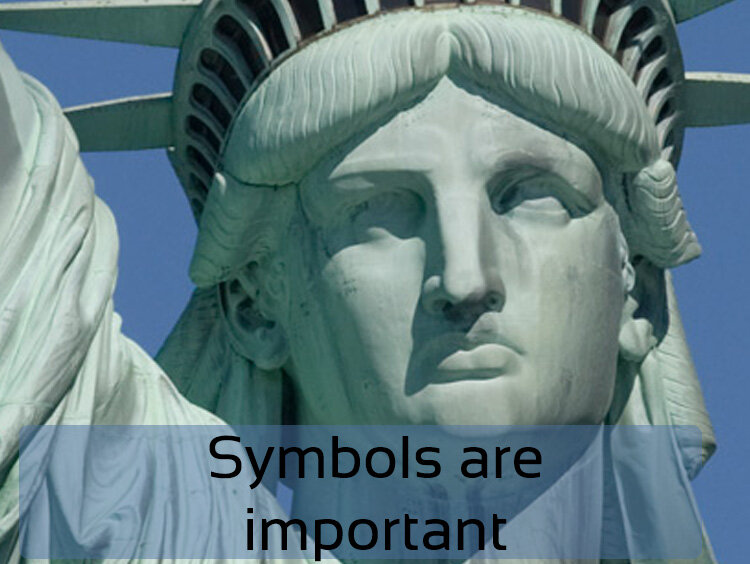 Symbols create a sense of belonging or alienation, an identity - whether it be for a team, a state, a culture, or a nation. They serve as rallying points for those that take them to their hearts. They show status, belief, ownership, and passion. Currency is one of our symbols. It represents several things important to our culture: nationhood, power, and wealth. What does it say about us that women aren’t represented on our money? It implies that our efforts are not important enough to be displayed in any of these arenas, that our quests for equality, for wealth, and for power (even when it comes to power over our own bodies) don’t mean as much. When a little girl sees our country’s paper money, the symbol also means something to her. If there is a woman on the bill, she will see someone like herself - someone who might even be her future-self, recognized and immortalized for their efforts for good.We want a nation where girls have the same opportunitiesYou see - we want our little girls to strive to be better - to have STEM careers, to fight the inequality that has put our nation where it is today: when men control our reproductive rights, when we are paid less than male counterparts wholly because of our sex, where rape is so common that it does not raise the anger and rancor of our neighbors. We want our little girls to know that they are just as important as their brothers. That they can make a difference. You can make a difference as well. Go vote on Womenon20s website. Donate what you can. Educate yourself on the powerful candidates chosen to represent women. And then, share! Talk to your friends and families. make a difference in your circle. It might not get you on the $20, but you’ll never know if something you say influences somebody else to be great!
Symbols create a sense of belonging or alienation, an identity - whether it be for a team, a state, a culture, or a nation. They serve as rallying points for those that take them to their hearts. They show status, belief, ownership, and passion. Currency is one of our symbols. It represents several things important to our culture: nationhood, power, and wealth. What does it say about us that women aren’t represented on our money? It implies that our efforts are not important enough to be displayed in any of these arenas, that our quests for equality, for wealth, and for power (even when it comes to power over our own bodies) don’t mean as much. When a little girl sees our country’s paper money, the symbol also means something to her. If there is a woman on the bill, she will see someone like herself - someone who might even be her future-self, recognized and immortalized for their efforts for good.We want a nation where girls have the same opportunitiesYou see - we want our little girls to strive to be better - to have STEM careers, to fight the inequality that has put our nation where it is today: when men control our reproductive rights, when we are paid less than male counterparts wholly because of our sex, where rape is so common that it does not raise the anger and rancor of our neighbors. We want our little girls to know that they are just as important as their brothers. That they can make a difference. You can make a difference as well. Go vote on Womenon20s website. Donate what you can. Educate yourself on the powerful candidates chosen to represent women. And then, share! Talk to your friends and families. make a difference in your circle. It might not get you on the $20, but you’ll never know if something you say influences somebody else to be great!  Over at Muse Views, we’ve talked about this campaign several times - first, in our Inspiring Women post, and then in our finalist series where we’re going through and discussing each of the final four candidates: Harriet Tubman, Eleanor Roosevelt, Rosa Parks (which Traci has been generous enough to write for us), and Wilma Mankiller (going live this Thursday). Make your voice heard!
Over at Muse Views, we’ve talked about this campaign several times - first, in our Inspiring Women post, and then in our finalist series where we’re going through and discussing each of the final four candidates: Harriet Tubman, Eleanor Roosevelt, Rosa Parks (which Traci has been generous enough to write for us), and Wilma Mankiller (going live this Thursday). Make your voice heard!
***
You can find my words on Rosa Parks here.
